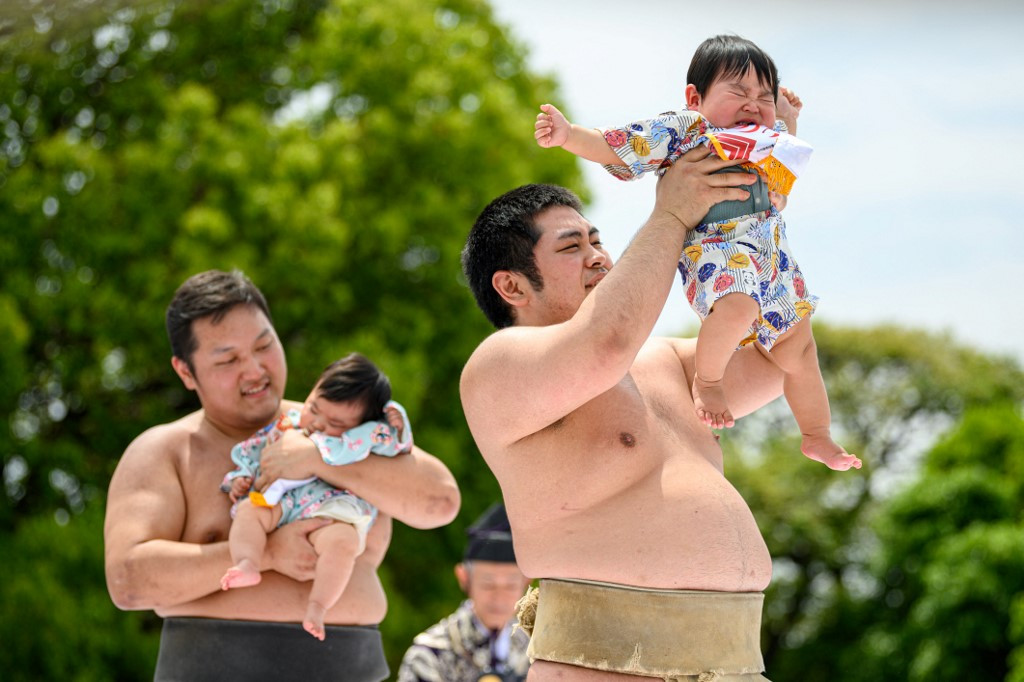Popular Reads
Top Results
Can't find what you're looking for?
View all search resultsPopular Reads
Top Results
Can't find what you're looking for?
View all search resultsJapan major bank to make 1-month paternity leave mandatory
Japan's Sumitomo Mitsui Banking Corp. will require its employees to take at least one month's paternity leave in principle from October to encourage participation in childcare and improve the working environment.
Change text size
Gift Premium Articles
to Anyone
J
apan's Sumitomo Mitsui Banking Corp. will require its employees to take at least one month's paternity leave in principle from October to encourage participation in childcare and improve the working environment, the company said.
As part of the measures to be adopted by fiscal year 2028, the major bank will pay a bonus of 50,000 yen ($335) to employees on parental leave and their colleagues if the business continues to operate stably during their absence.
Taking into consideration that workers will be able to secure adequate time for preparation, "We will promote initiatives to strengthen team resilience, seeing absences arising from childcare as an opportunity," the company said in a press release on Sept. 19.
The new measures will be adopted after the bank achieved a 100 percent acquisition rate for paternity leave in the 2023 fiscal year. However, the average length of leave was just 12 days, falling far short of the 30-day target.
Employees with children under 2 years old are subject to the paternity leave measure.
"Our goal is to eliminate gender stereotypes and establish a culture in which men taking paternity leave and participating in childcare are seen as the norm," the bank said.
The move comes as a growing number of Japanese companies are introducing measures to pay allowances to colleagues of workers on parental leave, intended to encourage staff to take time off and alleviate feelings of unfairness among those facing increased workloads.
According to a government survey, a record 40.5 percent of fathers with infants took paternity leave in 2024 but the percentage remained sharply lower than 86.6 percent of mothers who took maternity leave.
The surge in the one-year survey period through Oct. 1, 2024, is partly due to Japan's paternity leave program introduced in 2022 which endeavors to make it easier for fathers to take time off than it is under the preexisting paternity leave.
If it continues at this pace, the government may reach its goal of having 50 percent of fathers with infants taking paternity leave by 2025, although significant differences in take-up rates remain depending on company size and industry.
The rate of mothers with infants taking maternity leave from their employment was 86.6 percent, more than double the rate for men, according to the Ministry of Health, Labor and Welfare.
Many men are believed to decide against taking paternity leave due to perceived pressure not to increase the workload on their colleagues, with a ministry official saying, "It is important to create a society that respects the wishes of workers wanting to take time off."
The postnatal program allows fathers to take up to four weeks of leave within eight weeks of the birth of their child, in addition to the standard parental leave that can be taken until the child reaches one year of age.
According to the survey, a total of 40.5 percent of respondents took either postnatal paternity leave, standard parental leave, or both.
By company size, a majority 55.3 percent took paternity leave in firms with between 100 and 499 employees, while 53.8 percent took it in firms with 500 or more employees.
On the other hand, the data showed only 25.1 percent of employees at firms with five to 29 workers took paternity leave, while 35.8 percent took it in companies with 30 to 99 employees, suggesting difficulties for workers in small and medium-sized enterprises to take the time off.
Demonstrating wide disparities by industry, the rate of fathers taking leave in real estate, goods rental services, lifestyle-related services and entertainment were below 20 percent, while those in finance and insurance were above 60 percent.
The latest survey covered workers who took parental leave by Oct. 1, 2024, after their babies were born in the period between October 2022 and September 2023. Of the 6,300 entities with five employees or more surveyed, 3,383 responded, the government said.










